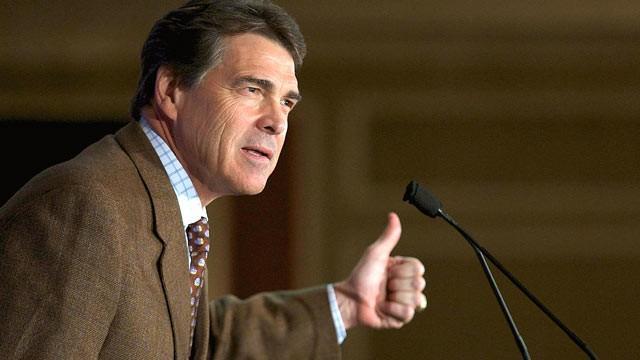For some, this year will be defined by grades, accolades, parties or the disgraceful clobbering the Tigers football team took in the 2012 national championship.
On a national scale, the year was filled with an overflow of campaign rhetoric and political promises surely to be broken as we head into one of the most anticipated and important presidential elections in recent history.
It was a GOP primary season filled with allegations of sexual harassment, sweater vests, Etch A Sketch blunders, Cadillacs and tax returns.
From the beginning, one question lingered: who would be the anti-Romney candidate?
Former Massachusetts Gov. Mitt Romney had been preparing for his 2012 campaign ever since his exit from the 2008 presidential primary, and he entered the race as the clear-cut favorite.
Summer and autumn would mark the beginning of the rise and fall of several candidates throughout the year.
Minnesota Rep. Michele Bachmann had formed a strong following through the summer, but lost significant momentum when Texas Gov. Rick Perry joined the race in August amid strong national Republican support.
By September, Perry had become the potential anti-Romney candidate and the frontrunner in all of the national primary polls. But it wouldn’t last.
Perry’s weak performance in the September and October debates led to his demise and the rise of Georgia businessman Herman Cain and former Pennsylvania Sen. Rick Santorum, who suddenly looked appealing to those looking for a potential anti-Romney.
While Perry and Bachmann continued to fall in the polls, the primary was rocked by allegations of sexual harassment involving Cain.
Cain’s support eroded overnight, with much of his following switching to support former House Speaker Newt Gingrich, and on Cain officially dropped out of the race Dec.3.
As January began, the situation in Iowa was unclear. Gingrich was devastated early in the contest by his rivals’ negative ads, but Romney, Santorum and Texas Rep. Ron Paul had reasons to be optimistic.
Santorum was given the chance to be the Evangelical anti-Romney candidate in Iowa, and he temporarily seized the title – winning the state by a handful of votes after a recount. The problem is Santorum went on to perform poorly in the next four contests.
After poor showings in Iowa and dismal projections in upcoming states, Perry, Bachmann and former Utah Gov. Jon Huntsman all dropped out. This left the field with four remaining candidates in Romney, Santorum, Gingrich and Paul.
Gingrich surged with a South Carolina primary victory shortly after Iowa and was poised to establish himself as the alternative to Romney, but that notion was swiftly struck down with Romney’s convincing win in the Florida primary 10 days later. In the national spotlight, Gingrich stood no chance against Romney’s money machine.
Santorum would then thrust himself into the conversation again after sweeping Colorado, Minnesota and Missouri, but the states awarded few delegates.
The true test for Romney’s rivals would come on March 6, Super Tuesday. The day would only cement what so many had been saying – a Romney candidacy is inevitable. Romney would take six of the 10 states on Super Tuesday, including the general election battleground of Ohio.
After months of bickering over Romney’s tax returns, Cadillacs and disconnection with American families, Romney remained the undisputed frontrunner.
April would see the end of the 2012 Republican presidential primary, with delegate counts showing no chance of Santorum, Gingrich or Paul getting a majority of the delegates.
On April 3, three contests were held, and Romney won them all. Santorum’s early lead in Wisconsin was obliterated, and the loss marked a turning point, as no one could any longer deny that Romney was going to win the nomination.
By May, Santorum and Gingrich had officially dropped out of the race with Paul still plotting a long-shot convention takeover.
If there is one thing to take away from the 2012 GOP primary, it’s the realization that there never was a true anti-Romney candidate – only pretenders.
Month by month, they came and went, rising triumphantly only to fall flat.
With the 2012 GOP primary circus out of the way, we move forward to a historic contest between President Barack Obama and the man who nobody could take down – Mitt Romney.
Matthew Westfall is a 23-year-old graduating in mass communication from Winchester, Va. Follow him on Twitter @TDR_mwestfall.
____ Contact Matthew Westfall at mwestfall@lsureveille.com
For Thinkers Only: The rise and fall of anti-Romneys
May 7, 2012
Texas Gov. Rick Perry joined the GOP race in August and became a temporary frontrunner in the polls.





